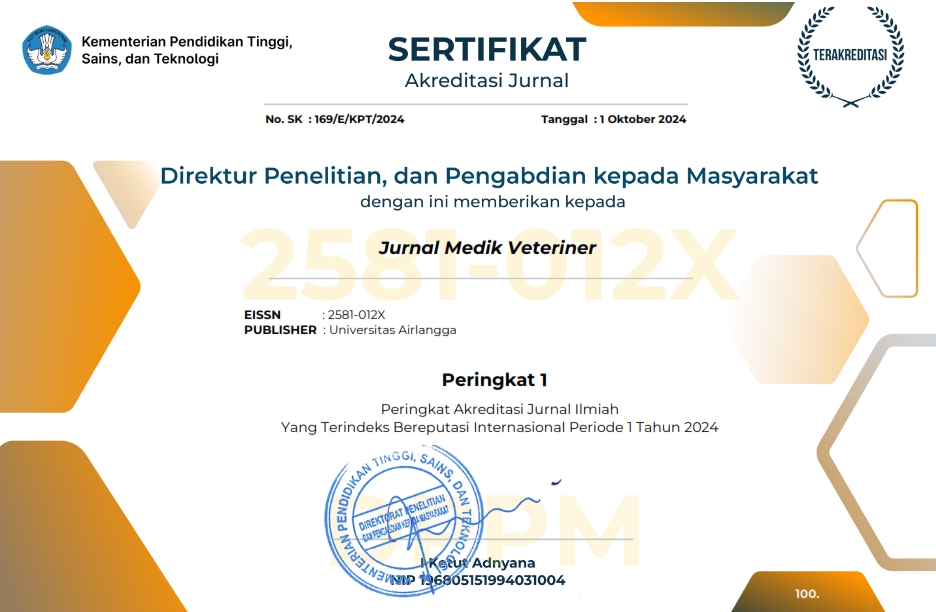Potential Effects of Omega-3 Fatty Acids on Type 1 Diabetes in Preventing Alzheimer’s Disease Progression

Downloads
The human metabolic syndrome of diabetes is widely reported globally. People with type 1 diabetes (T1D) are at high risk for developing diabetic complications. Increasing evidence in clinical studies and literature reviews suggests that T1D has a strong relation with cognitive impairments, leading to a higher occurrence of dementia and Alzheimer’s disease (AD). Research has shown that diet has a significant impact that may delay the onset of diabetes problems. Recent findings have demonstrated that omega-3 fatty acids act as a neuroprotective agent against the development of brain disorders. However, the positive impact of omega-3 fatty acids against diabetes, particularly on T1D, has debatable roles due to data inconsistencies. This review will discuss the mechanism of T1D on AD and the potential role of omega-3 fatty acids in degrading AD risk in patients with T1D. Scientific reports from epidemiological, molecular, and animal models and human studies are highlighted in this study. In conclusion, despite the conflicting results observed in both experimental and clinical studies, omega-3 fatty acids were proven to exhibit anti-inflammatory characteristics and alleviate autoimmune activities. Hence, omega-3 fatty acids are suggested to be considered in the prevention of AD progression, particularly in T1D patients. Nevertheless, the role of omega-3 fatty acids supplementation in T1D patients needs further exploration.
Agrawal, R., & Gomez-Pinilla, F. (2012). ‘Metabolic syndrome’ in the brain: deficiency in omega-3 fatty acid exacerbates dysfunctions in insulin receptor signalling and cognition. The Journal of Physiology, 590(10), 2485–2499.
Amtul, Z., Uhrig, M., Rozmahel, R. F., & Beyreuther, K. (2011). Structural Insight into the Differential Effects of Omega-3 and Omega-6 Fatty Acids on the Production of Aβ Peptides and Amyloid Plaques. Journal of Biological Chemistry, 286(8), 6100–6107.
Anwar, M. M. (2022). Oxidative stress-A direct bridge to central nervous system homeostatic dysfunction and Alzheimer’s disease. Cell Biochemistry and Function, 40(1), 17–27.
Aoki, C. A., Borchers, A. T., Ridgway, W. M., Keen, C. L., Ansari, A. A., & Gershwin, M. E. (2005). NOD mice and autoimmunity. Autoimmunity Reviews, 4(6), 373–379.
Avallone, R., Vitale, G., & Bertolotti, M. (2019). Omega-3 fatty acids and neurodegenerative diseases: New evidence in clinical trials. International Journal of Molecular Sciences, 20(4256).
Bakre, A. T., Chen, R., Khutan, R., Wei, L., Smith, T., Qin, G., Danat, I. M., Zhou, W., Schofield, P., Clifford, A., Wang, J., Verma, A., Zhang, C., & Ni, J. (2018). Association between fish consumption and risk of dementia: A new study from China and a systematic literature review and meta-analysis. Public Health Nutrition, 21(10), 1921–1932.
Balić, A., Vlašić, D., Žužul, K., Marinović, B., & Mokos, Z. B. (2020). Omega-3 Versus Omega-6 Polyunsaturated Fatty Acids in the Prevention and Treatment of Inflammatory Skin Diseases. International Journal of Molecular Sciences, 21(3), 741.
Basta, G., Schmidt, A. M., & De Caterina, R. (2007). Advanced Glycation Endproducts and the Accelerated Atherosclerosis in Diabetes. Endothelial Dysfunctions in Vascular Disease, 108–128.
Baynest, H. W. (2015). Classification, Pathophysiology, Diagnosis and Management of Diabetes Mellitus. Journal of Diabetes & Metabolism, 06(05).
Berbudi, A., Rahmadika, N., Tjahjadi, A. I., & Ruslami, R. (2019). Type 2 Diabetes and its Impact on the Immune System. Current Diabetes Reviews, 16(5), 442–449.
Bi, X., Li, F., Liu, S., Jin, Y., Zhang, X., Yang, T., Dai, Y., Li, X., & Zhao, A. Z. (2017). Ω-3 Polyunsaturated Fatty Acids Ameliorate Type 1 Diabetes and Autoimmunity. Journal of Clinical Investigation, 127(5), 1757–1771.
Bluestone, J. A., Herold, K., & Eisenbarth, G. (2010). Genetics, pathogenesis and clinical interventions in type 1 diabetes. Nature, 464(7293), 1293–1300.
Bodin, J., Stene, L. C., & Nygaard, U. C. (2015). Can exposure to environmental chemicals increase the risk of diabetes type 1 development? BioMed Research International, 2015.
Brook, E., Mamo, J., Wong, R., Al-Salami, H., Falasca, M., Lam, V., & Takechi, R. (2019). Blood-brain barrier disturbances in diabetes-associated dementia: Therapeutic potential for cannabinoids. Pharmacological Research, 141(9), 291–297.
Brown, T. J., Brainard, J., Song, F., Wang, X., Abdelhamid, A., & Hooper, L. (2019). Omega3, omega-6, and total dietary polyunsaturated fat for prevention and treatment of type 2 diabetes mellitus: Systematic review and meta-analysis of randomised controlled trials. The BMJ, 366, 1–16.
Burillo, J., Marqués, P., Jiménez, B., González-Blanco, C., Benito, M., & Guillén, C. (2021). Insulin resistance and diabetes mellitus in alzheimer’s disease. Cells, 10(5).
Cadario, F., Savastio, S., Ricotti, R., Rizzo, A. M., Carrera, D., Maiuri, L., & Ricordi, C. (2018). Administration of Vitamin D and high dose of omega 3 to sustain remission of type 1 diabetes. European Review for Medical and Pharmacological Sciences, 22(2), 512–515.
Cas, M. D., Roda, G., Li, F., & Secundo, F. (2020). Functional lipids in autoimmune inflammatory diseases. In International Journal of Molecular Sciences, 21(9).
Chauhan, S., Kodali, H., Noor, J., Ramteke, K., & Gawai, V. (2017). Role of omega-3 fatty acids on lipid profile in diabetic dyslipidaemia: Single blind, randomised clinical trial. Journal of Clinical and Diagnostic Research, 11(3), OC13–OC16.
Chewcharat, A., Chewcharat, P., Rutirapong, A., & Papatheodorou, S. (2020). The effects of omega-3 fatty acids on diabetic nephropathy: A meta-analysis of randomized controlled trials. PLoS ONE, 15(2), 1–18.
De Sousa, R. A. L., Harmer, A. R., Freitas, D. A., Mendonça, V. A., Lacerda, A. C. R., & Leite, H. R. (2020). An update on potential links between type 2 diabetes mellitus and Alzheimer’s disease. Molecular Biology Reports, 47(8), 6347–6356.
Delpino, F. M., Figueiredo, L. M., da Silva, B. G. C., da Silva, T. G., Mintem, G. C., Bielemann, R. M., & Gigante, D. P. (2021). Omega-3 supplementation and diabetes: A systematic review and meta-analysis. Critical reviews in food science and nutrition, 62(16), 4435–4448.
Devassy, J. G., Leng, S., Gabbs, M., Monirujjaman, M., & Aukema, H. M. (2016). Omega-3 polyunsaturated fatty acids and oxylipins in neuroinflammation and management of Alzheimer disease. Advances in Nutrition, 7(5), 905–916.
Fenske, R. J., Wienkes, H. N., Peter, D. C., Schaid, M. D., Pennati, A., Galipeau, J., & Kimple, M. E. (2021). Independent mechanisms underlie the protective effect of dietary polyunsaturated fatty acid supplementation and Gαz deficiency on the early type 1 diabetes phenotype of Non-obese diabetic (NOD) mice. BioRxiv, 2021–03.
Gorusupudi, A., Chang, F. Y., Nelson, K., Hageman, G. S., & Bernstein, P. S. (2019). n-3 PUFA Supplementation Alters Retinal Very-Long-Chain-PUFA Levels and Ratios in Diabetic Animal Models. Molecular Nutrition and Food Research, 63(15), 1–10.
Habib, E. K. (2013). Possible role of Omega-3 on the pancreas of streptozotocin-induced diabetes in adult albino rats: Histological and immunohistochemical study. Egyptian Journal of Histology, 36(3), 579–591.
Hamid, I. S., Fikri, F., Purnama, M. T. E., Solfaine, R., & Chhetri, S. (2022). Effects of Tithonia diversifolia on blood glucose levels, renal and pancreatic histopathology of Wistar rats: a model of diabetic nephropathy. Indian Veterinary Journal, 99(11), 37–39.
Holmes, C. (2013). Review: Systemic inflammation and Alzheimer’s disease. Neuropathology and Applied Neurobiology, 39(1), 51–68.
Hossain, M. A. (2011). Fish as source of n-3 polyunsaturated fatty acids (PUFAs), which one is better-farmed or wild? Advance Journal of Food Science and Technology, 3(6), 455– 466.
Inoue, T., Tanaka, M., Masuda, S., Ohue-Kitano, R., Yamakage, H., Muranaka, K., Wada, H., Kusakabe, T., Shimatsu, A., Hasegawa, K., & Satoh-Asahara, N. (2017). Omega-3 polyunsaturated fatty acids suppress the inflammatory responses of lipopolysaccharidestimulated mouse microglia by activating SIRT1 pathways. Biochimica et Biophysica Acta - Molecular and Cell Biology of Lipids, 1862(5), 552–560.
Katsarou, A., Gudbjörnsdottir, S., Rawshani, A., Dabelea, D., Bonifacio, E., Anderson, B. J., Jacobsen, L. M., Schatz, D. A., & Lernmark, A. (2017). Type 1 diabetes mellitus. Nature Reviews Disease Primers, 3(1), 1–17.
Keane, K. N., Cruzat, V. F., Carlessi, R., de Bittencourt Jr, P. I. H., & Newsholme, P. (2015). Molecular events linking oxidative stress and inflammation to insulin resistance and β‐cell dysfunction. Oxidative medicine and cellular longevity, 2015(1), 181643.
Kleinridders, A., Ferris, H. A., Cai, W., & Kahn, C. R. (2014). Insulin action in brain regulates systemic metabolism and brain function. Diabetes, 63(7), 2232–2243.
Kobyliak, N., Falalyeyeva, T., Mykhalchyshyn, G., Molochek, N., Savchuk, O., Kyriienko, D., & Komisarenko, I. (2020). Probiotic and omega-3 polyunsaturated fatty acids supplementation reduces insulin resistance, improves glycemia and obesity parameters in individuals with type 2 diabetes: A randomised controlled trial. Obesity Medicine, 19, 100248.
Kothari, V., Luo, Y., Tornabene, T., O’Neill, A. M., Greene, M. W., Geetha, T., & Babu, J. R. (2017). High fat diet induces brain insulin resistance and cognitive impairment in mice. Biochimica et Biophysica Acta (BBA) - Molecular Basis of Disease, 1863(2), 499–508.
Koye, D. N., Magliano, D. J., Nelson, R. G., & Pavkov, M. E. (2018). The Global Epidemiology of Diabetes and Kidney Disease. Advances in Chronic Kidney Disease, 25(2), 121–132.
Lee, H. J., Seo, H. I., Cha, H. Y., Yang, Y. J., Kwon, S. H., & Yang, S. J. (2018). Diabetes and Alzheimer’s Disease: Mechanisms and Nutritional Aspects. Clinical Nutrition Research, 7(4), 229.
Lu, D. Y., Tsao, Y. Y., Leung, Y. M., & Su, K. P. (2010). Docosahexaenoic acid suppresses neuroinflammatory responses and induces heme oxygenase-1 expression in BV-2 microglia: Implications of antidepressant effects for omega-3 fatty acids. Neuropsychopharmacology, 35(11), 2238–2248.
Lucena, C. F., Roma, L. P., Graciano, M. F. R., Veras, K., Simões, D., Curi, R., & Carpinelli, A. R. (2015). Omega-3 supplementation improves pancreatic islet redox status in vivo and in vitro studies. Pancreas, 44(2), 287–295.
Mali, A. V., Bhise, S. S., & Katyare, S. S. (2016). Omega-3 Fatty Acids and Diabetic Complications. Omega-3 Fatty Acids: Keys to Nutritional Health, 221–227.
Man, A. W. C., Li, H., & Xia, N. (2020). Impact of Lifestyles (Diet and Exercise) on Vascular Health: Oxidative Stress and Endothelial Function. Oxidative Medicine and Cellular Longevity, 2020.
McEwen, B., Morel-Kopp, M. C., Tofler, G., & Ward, C. (2010). Effect of omega-3 fish oil on cardiovascular risk in diabetes. Diabetes Educator, 36(4), 565–584.
Miller, M. R., Yin, X., Seifert, J., Clare-Salzler, M., Eisenbarth, G. S., Rewers, M., & Norris, J. M. (2011). Erythrocyte membrane omega-3 fatty acid levels and omega-3 fatty acid intake are not associated with conversion to type 1 diabetes in children with islet autoimmunity: The Diabetes Autoimmunity Study in the Young (DAISY). Pediatric Diabetes, 12(8), 669–675.
Morales-Corraliza, J., Wong, H., Mazzella, M. J., Che, S., Lee, S. H., Petkova, E., Wagner, J. D., Hemby, S. E., Ginsberg, S. D., & Mathews, P. M. (2016). Brain-Wide Insulin Resistance, Tau Phosphorylation Changes, and Hippocampal Neprilysin and Amyloid-β Alterations in a Monkey Model of Type 1 Diabetes. Journal of Neuroscience, 36(15), 4248–4258.
Mu, Y., & Gage, F. H. (2011). Adult hippocampal neurogenesis and its role in Alzheimer’s disease. Molecular Neurodegeneration, 6(1), 1–9.
Natto, Z. S., Yaghmoor, W., Alshaeri, H. K., & Van Dyke, T. E. (2019). Omega-3 Fatty Acids Effects on Inflammatory Biomarkers and Lipid Profiles among Diabetic and Cardiovascular Disease Patients: A Systematic Review and Meta-Analysis. Scientific Reports, 9(1).
Nettleton, J. A. (1995). Introduction to Fatty Acids. Omega-3 Fatty Acids and Health, 1–63.
Niinistö, S., Erlund, I., Lee, H. S., Uusitalo, U., Salminen, I., Aronsson, C. A., Parikh, H. M., Liu, X., Hummel, S., Toppari, J., She, J. X., Lernmark, Å., Ziegler, A. G., Rewers, M., Akolkar, B., Krischer, J. P., Galas, D., Das, S., Sakhanenko, N., Triplett, E. (2021). Children’s erythrocyte fatty acids are associated with the risk of islet autoimmunity. Scientific Reports, 11(1), 1–12.
Norris, J. M., Yin, X., Lamb, M. M., Barriga, K., Seifert, J., Hoffman, M., Orton, H. D., Barón, A. E., Clare-Salzler, M., Chase, H. P., Szabo, N. J., Erlich, H., Eisenbarth, G. S., & Rewers, M. (2007). Omega-3 polyunsaturated fatty acid intake and islet autoimmunity in children at increased risk for type 1 diabetes. Journal of the American Medical Association, 298(12), 1420–1428.
Panigrahy, S. K., Bhatt, R., & Kumar, A. (2017). Reactive oxygen species: sources, consequences and targeted therapy in type 2 diabetes. Journal of drug targeting, 25(2), 93–101.
Park, K. S., Lim, J. W., & Kim, H. (2009). Inhibitory mechanism of omega-3 fatty acids in pancreatic inflammation and apoptosis. Annals of the New York Academy of Sciences, 1171, 421–427.
Peter, D., Fenske, R., Wienkes, H., & Kimple, M. (2019). Increasing the dietary ratio of omega 3: omega 6 polyunsaturated fatty acids positively impacts inflammation and islet outcomes in Type 1 Diabetes. The FASEB Journal, 33(S1), 680.
Potenza, M. A., Sgarra, L., Desantis, V., Nacci, C., & Montagnani, M. (2021). Diabetes and Alzheimer’s disease: might mitochondrial dysfunction help deciphering the common path?. Antioxidants, 10(8), 1257.
Poudyal, H., Panchal, S. K., Diwan, V., & Brown, L. (2011). Omega-3 fatty acids and metabolic syndrome: Effects and emerging mechanisms of action. Progress in Lipid Research, 50(4), 372–387.
Purdel, C., Ungurianu, A., & Margina, D. (2021). Metabolic and Metabolomic Insights Regarding the Omega-3 PUFAs Intake in Type 1 Diabetes Mellitus. Frontiers in Molecular Biosciences, 8(12), 1–15.
Qi, C. J., Zhang, Q., Yu, M., Xu, J. P., Zheng, J., Wang, T., & Xiao, X. H. (2016). Imbalance of fecal microbiota at newly diagnosed type 1 diabetes in Chinese children. Chinese Medical Journal, 129(11), 1298–1304.
Ramos-Rodríguez, M., Pérez-González, B., & Pasquali, L. (2021). The β-Cell Genomic Landscape in T1D: Implications for Disease Pathogenesis. In Current Diabetes Reports, 21(1).
Razavi, M., Jamilian, M., Samimi, M., Afshar Ebrahimi, F., Taghizadeh, M., Bekhradi, R., Seyed Hosseini, E., Haddad Kashani, H., Karamali, M., & Asemi, Z. (2017). The effects of Vitamin D and omega-3 fatty acids co-supplementation on biomarkers of inflammation, oxidative stress and pregnancy outcomes in patients with gestational diabetes. Nutrition and Metabolism, 14(1).
Rendra, E., Riabov, V., Mossel, D. M., Sevastyanova, T., Harmsen, M. C., & Kzhyshkowska, J. (2019). Reactive oxygen species (ROS) in macrophage activation and function in diabetes. Immunobiology, 224(2), 242–253.
Saisho, Y., Manesso, E., Butler, A. E., Galasso, R., Kavanagh, K., Flynn, M., Zhang, L., Clark, P., Gurlo, T., Toffolo, G. M., Cobelli, C., Wagner, J. D., & Butler, P. C. (2011). Ongoing β-Cell Turnover in Adult Nonhuman Primates Is Not Adaptively Increased in Streptozotocin-Induced Diabetes. Diabetes, 60(3), 848–856.
Sevenich, L. (2018). Brain-resident microglia and blood-borne macrophages orchestrate central nervous system inflammation in neurodegenerative disorders and brain cancer. Frontiers in Immunology, 9(4), 697.
Shalimova, A., Graff, B., Gasecki, D., Wolf, J., Sabisz, A., Szurowska, E., Jodzio, K., & Narkiewicz, K. (2019). Cognitive dysfunction in type 1 diabetes mellitus. Journal of Clinical Endocrinology and Metabolism, 104(6), 2239–2249.
Simopoulos, A. P. (2002). Omega-3 fatty acids in inflammation and autoimmune diseases. Journal of the American College of Nutrition, 21(6), 495–505.
Simopoulos, A. P. (2013). Dietary Omega-3 Fatty Acid Deficiency and High Fructose Intake in the Development of Metabolic Syndrome, Brain Metabolic Abnormalities, and NonAlcoholic Fatty Liver Disease. Nutrients, 5(8), 2901–2923.
Smith, A. D. (2002). Imaging the progression of Alzheimer pathology through the brain. Proceedings of the National Academy of Sciences of the United States of America, 99(7), 4135–4137.
Soleimani, A., Taghizadeh, M., Bahmani, F., Badroj, N., & Asemi, Z. (2017). Metabolic response to omega-3 fatty acid supplementation in patients with diabetic nephropathy: A randomized, double-blind, placebo-controlled trial. Clinical Nutrition, 36(1), 79–84.
Solikhah, T. I., Rani, C. A. M., Septiani, M., Putra, Y. A. S., Rachmah, Q., Solikhah, G. P., Yunita, M. N., & Purnama, M. T. E. (2022). Antidiabetic of Hylocereus polyrhizus peel ethanolic extract on alloxan induced diabetic mice. Iraqi Journal of Veterinary Sciences, 36(3), 797–802.
Soltan, S. S. A. M. (2012). The Effects of Varieties Sources of Omega-3 Fatty Acids on Diabetes in Rats. Food and Nutrition Sciences, 03(10), 1404–1412.
Stella, A. B., Cappellari, G. G., Barazzoni, R., & Zanetti, M. (2018). Update on the impact of omega 3 fatty acids on inflammation, insulin resistance and sarcopenia: A review. International Journal of Molecular Sciences, 19(1).
Strain, W. D., & Paldánius, P. M. (2018). Diabetes, cardiovascular disease and the microcirculation. Cardiovascular Diabetology, 17(57), 1–10.
Suryadiningrat, M., Kurniawati, D. Y., Mujiburrahman, A., & Purnama, M. T. E. (2021). Dietary polyvinyl alcohol and alginate nanofibers ameliorate hyperglycemia by reducing insulin and glucose-metabolizing enzyme levels in rats with streptozotocin-induced diabetes. Veterinary World, 14(4), 847.
Thota, R. N., Acharya, S. H., & Garg, M. L. (2019). Curcumin and/or omega-3 polyunsaturated fatty acids supplementation reduces insulin resistance and blood lipids in individuals with high risk of type 2 diabetes: a randomised controlled trial. Lipids in Health and Disease, 18(31).
Thota, R. N., Rosato, J. I., Burrows, T. L., Dias, C. B., Abbott, K. A., Martins, R. N., & Garg, M. L. (2020). Docosahexaenoic Acid-Rich Fish Oil Supplementation Reduces Kinase Associated with Insulin Resistance in Overweight and Obese Midlife Adults. Nutrients, 12(6), 1612.
Umegaki, H. (2012). Neurodegeneration in Diabetes Mellitus. Advances in Experimental Medicine and Biology, 724, 258–265.
van Bussel, B. C. T., Henry, R. M. A., Schalkwijk, C. G., Ferreira, I. I., Feskens, E. J. M., Streppel, M. T., Smulders, Y. M., Twisk, J. W. R., & Stehouwer, C. D. A. (2011). Fish Consumption in Healthy Adults Is Associated with Decreased Circulating Biomarkers of Endothelial Dysfunction and Inflammation during a 6-Year Follow-Up. The Journal of Nutrition, 141(9), 1719–1725.
Wang, G., Zhang, X., Lu, X., Liu, J., Zhang, Z., Wei, Z., Wu, Z., & Wang, J. (2020). Fish oil supplementation attenuates cognitive impairment by inhibiting neuroinflammation in STZ-induced diabetic rats. Aging, 12(15), 15281–15289.
Wang, H., Deng, J. L., Chen, L., Ding, K., & Wang, Y. (2021). Acute glucose fluctuation induces inflammation and neurons apoptosis in hippocampal tissues of diabetic rats. Journal of Cellular Biochemistry, 122(9), 1239–1247.
Warshauer, J. T., Bluestone, J. A., & Anderson, M. S. (2020). New Frontiers in the Treatment of Type 1 Diabetes. Cell Metabolism, 31(1), 46–61.
Wu, J., & Yan, L. J. (2015). Streptozotocin-induced type 1 diabetes in rodents as a model for studying mitochondrial mechanisms of diabetic β cell glucotoxicity. In Diabetes, Metabolic Syndrome and Obesity: Targets and Therapy, 8, 181–188.
Xue, B., Yang, Z., Wang, X., & Shi, H. (2012). Omega-3 Polyunsaturated Fatty Acids Antagonize Macrophage Inflammation via Activation of AMPK/SIRT1 Pathway. PLoS ONE, 7(10), e45990.
Yan, L., Xie, Y., Satyanarayanan, S. K., Zeng, H., Liu, Q., Huang, M., Ma, Y., Wan, J. B., Yao, X., Su, K. P., & Su, H. (2020). Omega-3 polyunsaturated fatty acids promote brainto-blood clearance of β-Amyloid in a mouse model with Alzheimer’s disease. Brain, Behavior, and Immunity, 85, 35–45.
Yang, Y., Wu, Y., Zhang, S., & Song, W. (2013). High Glucose Promotes Ab Production by Inhibiting APP Degradation. PLoS ONE, 8(7), 69824.
Yun, J. H., Lee, D. H., Jeong, H. S., Kim, H. S., Ye, S. K., & Cho, C. H. (2021). STAT3 activation in microglia exacerbates hippocampal neuronal apoptosis in diabetic brains. Journal of Cellular Physiology, 236(10), 7058–7070.
Zhang, X., Olsen, N., & Zheng, S. G. (2020). The progress and prospect of regulatory T cells in autoimmune diseases. Journal of Autoimmunity, 111, 102461.
Zhao, M., Liao, D., & Zhao, J. (2017). Diabetes-induced mechanophysiological changes in the small intestine and colon. World Journal of Diabetes, 8(6), 249.
Copyright (c) 2025 Nurina Titisari, Hafandi Ahmad, Ahmad Fauzi, Nurdiana Samsulrizal, Intan Shameha Abdul Razak

This work is licensed under a Creative Commons Attribution-NonCommercial-ShareAlike 4.0 International License.
Authors who publish in this journal agree to the following terms:
1. The journal allows the author to hold the copyright of the article without restrictions;
2. The journal allows the author(s) to retain publishing rights without restrictions;
3. The legal formal aspect of journal publication accessibility refers to Creative Commons Attribution-NonCommercial-ShareAlike 4.0 International License (CC BY-NC-SA).






11.jpg)




















